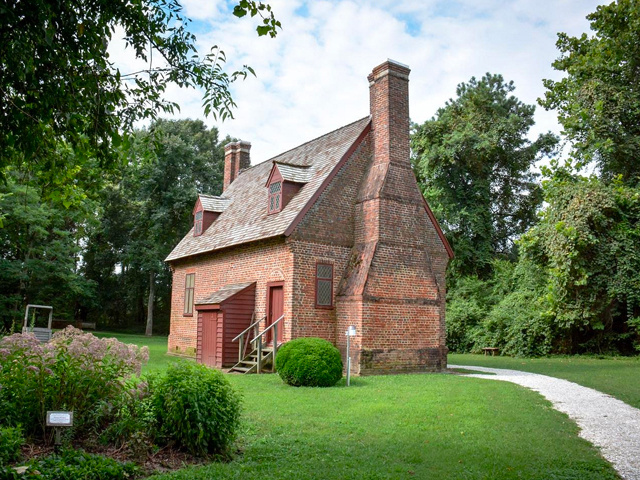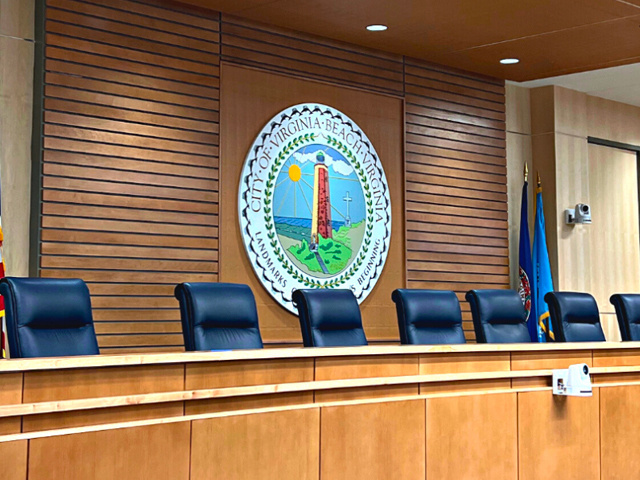Latest News
Statement From City of Virginia Beach Regarding Challenges to the 10-1 Election System
The City of Virginia Beach has obtained a copy of a lawsuit challenging the City’s adoption of a decennial redistricting measure in August 2023 and the November 2022 local election’s use of a 10-1 single member district system ordered by the U.S. District Court for the Eastern District of Virginia. The City has several initial observations.
First, what is not in the lawsuit is as important, or more important, than what is in it. Specifically, the suit does not allege that the City’s charter election system complies with the U.S. Constitution or the Voting Rights Act of 1965. Equally conspicuous is the absence of any allegation that the City’s charter system complies with the Virginia Voting Rights Act (Virginia Code 24.2-125 et seq., enacted in 2021).
The November 2022 Elections
In 2021, the U.S. District Court ruled in Holloway v. City of Virginia Beach that the City’s local election system as provided under the charter violates Section 2 of the Voting Rights Act of 1965 by diluting minority voting strength and ordered the implementation of a court-drawn 10-1 single member district election system to remedy the violation
On Jan. 14, 2022, the Virginia Attorney General’s office issued a certificate of no objection preclearing the use of the court-ordered 10-1 for the November 2022 elections under state law, and the 10-1 system was promptly implemented by state and local officials to allow for the orderly qualification of candidates prior to the June 21, 2022, state law candidate filing deadline.
While it is true that on July 27, 2022, the U.S. Court of Appeals vacated the U.S. District Court orders in Holloway, the 10-1 district system had already been implemented by state and local election officials, and the first phase of the election (the qualification of candidates) had already been completed using the 10-1 system.
Under state law, there was no mechanism for City Council candidates to qualify for the ballot in different districts or under different election systems once the June 21, 2022, deadline had passed. The Virginia General Assembly had adjourned its 2022 general session earlier in the year, so no charter change could have been realistically pursued in time for the November 2022 election.
For these reasons, the Nov. 8, 2022, local election was administered by state and local officials using the 10-1 system previously ordered by the U.S. District Court and multiple council members were elected and took office on Jan. 1, 2023.
Under Virginia Code § 24.2-808, any attempt to contest the Nov. 8, 2022, local election was required to be filed no later than 30 days after the election (Dec. 8, 2022). No lawsuit was filed by these or any other plaintiffs contesting the system or districts used or the results of the Nov. 2022 election either before or within the required 30 days after the election. Moreover, these plaintiffs do not appear to seek to overturn the seating of Council members elected in the November 2022 election. The challenge to the Nov. 8, 2022, local election is accordingly both untimely and moot, in addition to being substantively without merit.
The November 2024 Elections
Understanding that there needed to be affirmative City Council action including the adoption of a decennial redistricting ordinance, to provide for City Council elections in 2024 and beyond, the City Council engaged the University of Virginia’s Weldon Cooper Center to obtain a wide variety of citizen input and to recommend one or more election systems that fully comply with the Voting Rights Act of 1965 and state election laws, including the Virginia Voting Rights Act.
Importantly, the Cooper Center conducted a statistically validated public opinion survey and determined that the 10-1 system used for the 2022 election was supported by 81% of city residents, with a +/- 3% margin of error and a 95% confidence level.
The City also received substantial information during that process which caused City Council to conclude that the 10-1 system used in the 2022 election is the only legally viable system under both federal and state law, including the Virginia Voting Rights Act.
Virginia Code § 24.2-130 provides as follows:
- An at-large method of election, including one that combines at-large elections with district- or ward-based elections, shall not be imposed or applied by the governing body of any locality in a manner that impairs the ability of members of a protected class, as defined in § 24.2-125, to elect candidates of its choice or its ability to influence the outcome of an election, as a result of the dilution or the abridgement of the rights of voters who are members of a protected class.
- A violation of subsection A is established if it is shown that racially polarized voting occurs in local elections and that this, in combination with the method of election, dilutes the voting strength of members of a protected class.
For purposes of this subsection, "racially polarized voting" refers to the extent to which the candidate preferences of members of the protected class and other voters in the jurisdiction have differed in recent elections for the office at issue and other offices in which the voters have been presented with a choice between candidates who are members of the protected class and candidates who are not members of the protected class.
A finding of racially polarized voting or a violation of subsection A shall not be precluded by the fact that members of a protected class are not geographically compact or concentrated in a locality. Proof of an intent on the part of voters or elected officials to discriminate against members of a protected class shall not be required to prove a violation of subsection A.
Because a federal court found that racially polarized voting exists in Virginia Beach and an at large method of election in Virginia Beach dilutes minority voting strength, no local election system for Virginia Beach that includes an at-large method of election, including one that combines at-large elections with district- or ward-based elections (such as the system set forth in the charter) may be imposed. Accordingly, the Virginia Beach charter appears to conflict with the legal requirements of § 24.2-130, and therefore, state law provides, at best, contradictory direction as to which local election system is required in Virginia Beach.
Seeking to reach a resolution of these issues, and as it was required to do by state law, on Aug. 15, 2023, the City Council adopted a decennial redistricting measure by a 10-1 vote. That measure adopted a 10-district system with only the mayor serving at large and utilized the same district maps that the federal court had previously determined were fully compliant with the federal Voting Rights Act and is believed to comply with the Virginia Voting Rights Act.
Virginia Code § 24.2-304.1 provides that “if the [local governing body] members are elected from district or wards and other than entirely at large from the locality,…” a local governing body “…shall reapportion the representation among the district or wards, including, if the governing body deems it appropriate, increasing or diminishing the number of such districts or wards…”
In its decennial redistricting ordinance, the City increased the number of districts or wards to 10 from the 7 set forth in the charter as explicitly as permitted under § 24.2-304.1. Also, given that utilizing at large districts in Virginia Beach local elections seemingly violates the Virginia Voting Rights Act, and given that the charter provides for 11 council members (which is the maximum number permitted by Virginia Code § 15.2-1400(B)), the City Council adopted a decennial redistricting ordinance redistricting its population among 10 districts, leaving only the mayor elected at large.
After the City Council adopted the redistricting measure, the City submitted the measure to the Virginia Attorney General’s office for its pre-clearance review as required under the Virginia Voting Rights Act. On Oct. 10, 2023, the Virginia Attorney General’s office issued a “Certification of No Objection,” noting that it had reviewed the “system of elections and district maps” and “we find no reason to object to Virginia Beach’s proposed changes.”
Understanding that the adopted system had now received pre-clearance from the Virginia Attorney General’s office as complying with the Virginia Voting Rights Act, but the system conflicted with the charter provisions as to the number of at large members, City Council followed the state statutory process to seek a charter change which, if adopted, would expressly harmonize the charter with the requirements of the Virginia Voting Rights Act and the Council’s adopted decennial redistricting measure.
On Nov. 17, 2023, following the requisite public hearing, City Council adopted by a 9-1 vote a resolution requesting the charter be changed, and that request is manifested in current HB 416 which is on the floor of the House of Delegates, and current SB 189, which passed the Senate already in a 40-0 vote.
Virginia Code § 24.2-311(E) provides that “[i]n the event of a conflict between the provisions of a decennial redistricting measure and the provisions of the charter of any locality, the provisions of the redistricting measure shall be deemed to override the charter provisions to the extent required to give effect to the redistricting plan.”
Accordingly, either the City has already lawfully, fully adopted the 10-1 system in its decennial redistricting measure and the suit is entirely without legal merit as to the adoption of the 10-1 system for 2024 and beyond, or the City is in the middle of an ongoing process of seeking lawful adoption of the 10-1 system via a charter or general law change in the General Assembly and this suit is unripe as to the City’s adoption of such system.
Contact Information
The City of Virginia Beach has obtained a copy of a lawsuit challenging the City’s adoption of a decennial redistricting measure in August 2023 and the November 2022 local election’s use of a 10-1 single member district system ordered by the U.S. District Court for the Eastern District of Virginia. The City has several initial observations.
First, what is not in the lawsuit is as important, or more important, than what is in it. Specifically, the suit does not allege that the City’s charter election system complies with the U.S. Constitution or the Voting Rights Act of 1965. Equally conspicuous is the absence of any allegation that the City’s charter system complies with the Virginia Voting Rights Act (Virginia Code 24.2-125 et seq., enacted in 2021).
The November 2022 Elections
In 2021, the U.S. District Court ruled in Holloway v. City of Virginia Beach that the City’s local election system as provided under the charter violates Section 2 of the Voting Rights Act of 1965 by diluting minority voting strength and ordered the implementation of a court-drawn 10-1 single member district election system to remedy the violation
On Jan. 14, 2022, the Virginia Attorney General’s office issued a certificate of no objection preclearing the use of the court-ordered 10-1 for the November 2022 elections under state law, and the 10-1 system was promptly implemented by state and local officials to allow for the orderly qualification of candidates prior to the June 21, 2022, state law candidate filing deadline.
While it is true that on July 27, 2022, the U.S. Court of Appeals vacated the U.S. District Court orders in Holloway, the 10-1 district system had already been implemented by state and local election officials, and the first phase of the election (the qualification of candidates) had already been completed using the 10-1 system.
Under state law, there was no mechanism for City Council candidates to qualify for the ballot in different districts or under different election systems once the June 21, 2022, deadline had passed. The Virginia General Assembly had adjourned its 2022 general session earlier in the year, so no charter change could have been realistically pursued in time for the November 2022 election.
For these reasons, the Nov. 8, 2022, local election was administered by state and local officials using the 10-1 system previously ordered by the U.S. District Court and multiple council members were elected and took office on Jan. 1, 2023.
Under Virginia Code § 24.2-808, any attempt to contest the Nov. 8, 2022, local election was required to be filed no later than 30 days after the election (Dec. 8, 2022). No lawsuit was filed by these or any other plaintiffs contesting the system or districts used or the results of the Nov. 2022 election either before or within the required 30 days after the election. Moreover, these plaintiffs do not appear to seek to overturn the seating of Council members elected in the November 2022 election. The challenge to the Nov. 8, 2022, local election is accordingly both untimely and moot, in addition to being substantively without merit.
The November 2024 Elections
Understanding that there needed to be affirmative City Council action including the adoption of a decennial redistricting ordinance, to provide for City Council elections in 2024 and beyond, the City Council engaged the University of Virginia’s Weldon Cooper Center to obtain a wide variety of citizen input and to recommend one or more election systems that fully comply with the Voting Rights Act of 1965 and state election laws, including the Virginia Voting Rights Act.
Importantly, the Cooper Center conducted a statistically validated public opinion survey and determined that the 10-1 system used for the 2022 election was supported by 81% of city residents, with a +/- 3% margin of error and a 95% confidence level.
The City also received substantial information during that process which caused City Council to conclude that the 10-1 system used in the 2022 election is the only legally viable system under both federal and state law, including the Virginia Voting Rights Act.
Virginia Code § 24.2-130 provides as follows:
- An at-large method of election, including one that combines at-large elections with district- or ward-based elections, shall not be imposed or applied by the governing body of any locality in a manner that impairs the ability of members of a protected class, as defined in § 24.2-125, to elect candidates of its choice or its ability to influence the outcome of an election, as a result of the dilution or the abridgement of the rights of voters who are members of a protected class.
- A violation of subsection A is established if it is shown that racially polarized voting occurs in local elections and that this, in combination with the method of election, dilutes the voting strength of members of a protected class.
For purposes of this subsection, "racially polarized voting" refers to the extent to which the candidate preferences of members of the protected class and other voters in the jurisdiction have differed in recent elections for the office at issue and other offices in which the voters have been presented with a choice between candidates who are members of the protected class and candidates who are not members of the protected class.
A finding of racially polarized voting or a violation of subsection A shall not be precluded by the fact that members of a protected class are not geographically compact or concentrated in a locality. Proof of an intent on the part of voters or elected officials to discriminate against members of a protected class shall not be required to prove a violation of subsection A.
Because a federal court found that racially polarized voting exists in Virginia Beach and an at large method of election in Virginia Beach dilutes minority voting strength, no local election system for Virginia Beach that includes an at-large method of election, including one that combines at-large elections with district- or ward-based elections (such as the system set forth in the charter) may be imposed. Accordingly, the Virginia Beach charter appears to conflict with the legal requirements of § 24.2-130, and therefore, state law provides, at best, contradictory direction as to which local election system is required in Virginia Beach.
Seeking to reach a resolution of these issues, and as it was required to do by state law, on Aug. 15, 2023, the City Council adopted a decennial redistricting measure by a 10-1 vote. That measure adopted a 10-district system with only the mayor serving at large and utilized the same district maps that the federal court had previously determined were fully compliant with the federal Voting Rights Act and is believed to comply with the Virginia Voting Rights Act.
Virginia Code § 24.2-304.1 provides that “if the [local governing body] members are elected from district or wards and other than entirely at large from the locality,…” a local governing body “…shall reapportion the representation among the district or wards, including, if the governing body deems it appropriate, increasing or diminishing the number of such districts or wards…”
In its decennial redistricting ordinance, the City increased the number of districts or wards to 10 from the 7 set forth in the charter as explicitly as permitted under § 24.2-304.1. Also, given that utilizing at large districts in Virginia Beach local elections seemingly violates the Virginia Voting Rights Act, and given that the charter provides for 11 council members (which is the maximum number permitted by Virginia Code § 15.2-1400(B)), the City Council adopted a decennial redistricting ordinance redistricting its population among 10 districts, leaving only the mayor elected at large.
After the City Council adopted the redistricting measure, the City submitted the measure to the Virginia Attorney General’s office for its pre-clearance review as required under the Virginia Voting Rights Act. On Oct. 10, 2023, the Virginia Attorney General’s office issued a “Certification of No Objection,” noting that it had reviewed the “system of elections and district maps” and “we find no reason to object to Virginia Beach’s proposed changes.”
Understanding that the adopted system had now received pre-clearance from the Virginia Attorney General’s office as complying with the Virginia Voting Rights Act, but the system conflicted with the charter provisions as to the number of at large members, City Council followed the state statutory process to seek a charter change which, if adopted, would expressly harmonize the charter with the requirements of the Virginia Voting Rights Act and the Council’s adopted decennial redistricting measure.
On Nov. 17, 2023, following the requisite public hearing, City Council adopted by a 9-1 vote a resolution requesting the charter be changed, and that request is manifested in current HB 416 which is on the floor of the House of Delegates, and current SB 189, which passed the Senate already in a 40-0 vote.
Virginia Code § 24.2-311(E) provides that “[i]n the event of a conflict between the provisions of a decennial redistricting measure and the provisions of the charter of any locality, the provisions of the redistricting measure shall be deemed to override the charter provisions to the extent required to give effect to the redistricting plan.”
Accordingly, either the City has already lawfully, fully adopted the 10-1 system in its decennial redistricting measure and the suit is entirely without legal merit as to the adoption of the 10-1 system for 2024 and beyond, or the City is in the middle of an ongoing process of seeking lawful adoption of the 10-1 system via a charter or general law change in the General Assembly and this suit is unripe as to the City’s adoption of such system.
Contact Information
Keep Reading
See All PostsFebruary 17, 2026
ShotSpotter Alert Leads to Arrest on Hampstead Court
February 12, 2026
Commonwealth v. Tyler Lynn Davis; 58 Years to Serve for Attempted Aggravated Murder of On-Duty Police Officer
February 12, 2026
Virginia Beach Launches School Speed Zone Camera Enforcement Program
-
Calendar News Blog Hot Topics Multimedia Social Media Mobile Apps








